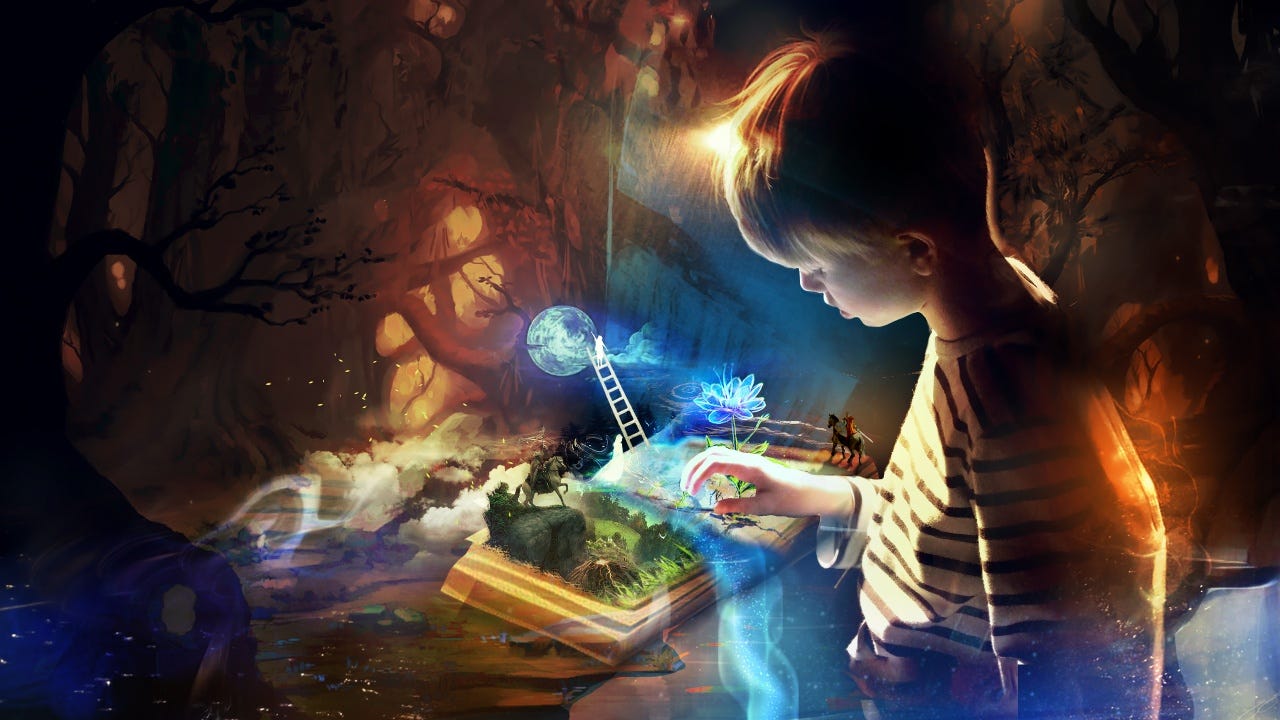
“Man’s maturity: to have regained the seriousness that he had as a child at play.” ― Friedrich Nietzsche
Dutch cultural historian Johan Huizinga proposed humans be called Homo Ludens (playful beings) rather than Homo Sapiens (wise beings). Huizinga held that “civilisation arises and unfolds in as we play.”
If civilisations do indeed unfold as we play, then so too must new businesses, new ideas and new mental models? When you think that every man-made creation began as an idea, then we must develop a society that not only values ideas but cultivates and nurtures them. This goal can only be achieved if we redefine word Play in a business sense. Play embodies the presence of imagination, the bravery to experiment and an authentic willingness to fail. Play equally embodies an absence of judgement, an absence of fear and an absence of rules.
Childlike or “playful” thinking does not mean it is child-ish, but it is child-like. A childlike state is one from which innovation originates and this why we must liberate the inner child both in society and in the workplace.
“Creative people tend to approach the world in a fresh and original way that is not shaped by pre-conceptions. The obvious order and rules that are so evident to less creative people, and which give a comfortable structure to life, often are not perceived by the creative individual, who tends to see things in a different and novel way.” — Dr Nancy C. Andreasen
Albert Einstein once said “Play is the highest form of research.”, but he also said: “We can’t solve problems by using the same kind of thinking we used when we created them.” This means we need to have sufficiently evolved our thinking to even consider the problem. Many business leaders approach their problems with a business brain that is stuck in a stage, where it is focussed on maintaining the status quo and protecting the business as it was. A playful, childlike approach would not frame a challenge as a problem, even the perception of a challenge as a problem sets it up as an obstacle that must be overcome. Such framing invites a linear, quantitative, competitive approach, an approach more suited for management than leadership, an approach more aligned with maintaining the status quo than exploring the novel.
When organisations bring their people together to innovate, in a sense, they are“forcing” people to innovate. Forcing people to innovate is akin to ordering a child to “go outside and play” — in an instant, it no longer feels like play, it becomes a chore. As Mark Twain said, “Work consists of whatever a body is obliged to do. Play consists of whatever a body is not obliged to do.” True innovation — like true play — is spontaneous, it is unexpected and it is random.
In a business world established for a bygone time, how do we create innovative organisations?
It is said that a farmer does not grow crops, but she creates the conditions for crops to grow. In a similar fashion, we must create the conditions for innovation to thrive and for our people to grow, nay, to evolve. That is the focus of this Thursday Thought.
Beginners Mind
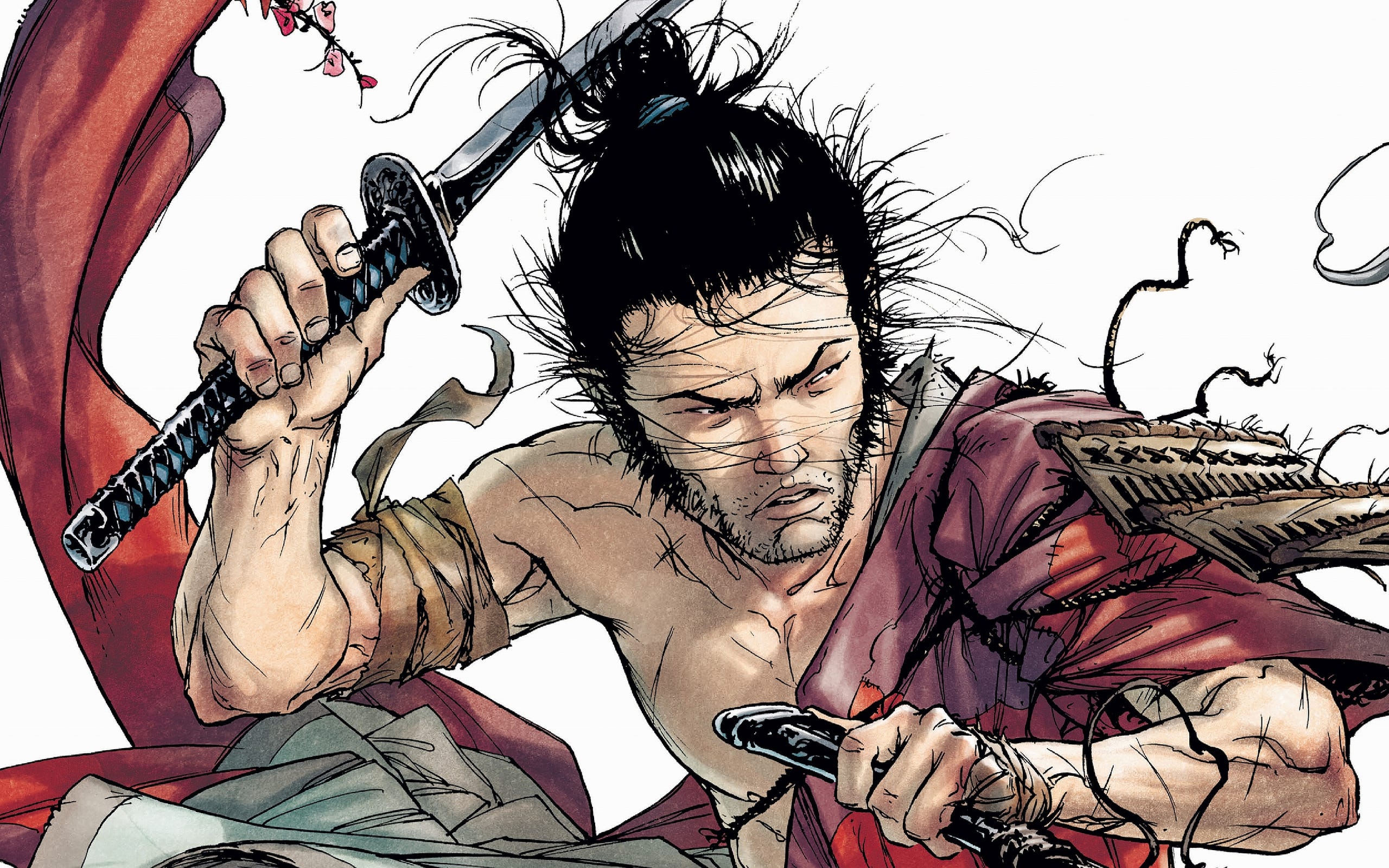
Martial arts teaches a principle called Shoshin, a word from Zen Buddhism meaning beginner. It refers to having an attitude of openness, eagerness, and lack of preconceptions or biases, even when studying at an advanced level, just as a beginner would. With a beginner’s mind, one always respects first principles while building on those first principles. Best-in-class students ensure they build upon every stage of their evolution, balancing present learnings with both past and new learnings by engaging with inexperienced beginners and experienced mentors alike. Think of a professional football player coaching young players, while concurrently learning from more experienced players, while she perfects her own game as she perceives it today. When a player coaches or engages with younger players, she not only teaches her own learnings but also learns from the experience of teaching. I can think of no better way to illustrate the need a beginner’s mindset in business, we must incorporate the past, present and future of the business.
Pope Francis said: “A population who does not take care of the elderly and of children and youth has no future, because it abuses both its memory and its promise.” Parking for a moment the atrocities of the Church, I like what Pope Francis is getting at, although I would tweak it for a business context. It would read, “Any business who does not consider both its past and its future has no future because it abuses both its memory and its promise.” Business needs to be more holistic than ever, it needs to deal with a business environment that is uncertain, volatile and complex. Embracing childlike observations can help us navigate these turbulent times. To tackle the problems that arise from such chaos, we need a holistic organisational brain, which means an absence of silos, a reconfiguration of hierarchy and culture of mass collaboration.
The Holistic Organisation
One step to becoming a “whole individual” involves integrating one’s rational adult with one’s childlike self. When the integration of the adult and child self is complete, the adult self provides a safe place to play, explore and create for the inner child. In having such a sanctuary to be creative, to imagine and to play the child self can thrive.
This week’s innovation show guest Christopher Phillips PhD tells us that children shine in their “distinctive capacities for change, especially imagination and learning.” Adults, on the other hand, excel at “long-term planning, swift and automatic execution, rapid skilful reaction.” This creates an “evolutionary division of labour.” Children and adults need each other’s talents and skills equally if each is to develop to their fullest capacity. What a magnificent metaphor for the organisational entity. In this case, the established organisation is the adult: rational, organised and reactive. The child then represents the new business or new business model, full of imagination, flexible and adaptive to change. Even when you read those words, there is a sense of hierarchy, the adult is superior and this is one of the many reasons innovation fails in so many organisations.
To succeed, the organisation must imitate the “whole” person and become “whole” itself, by merging adult and child as partners to benefit from each other’s talents and skills equally. Such an approach establishes part of the foundations for a holistic organisation.
First Play, then Discipline, Then Play Again
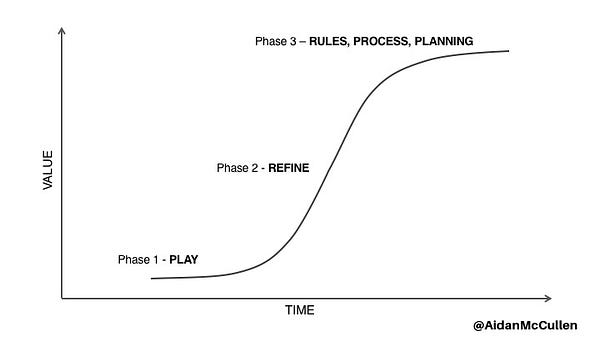
Plato asserted that play must be responsible, sensible, bounded and serious. While I do not condone sucking the fun out of play, a general trend of a sustained plan is the addition of order. This is also the trend of business. See the image above, for example, all startups follow this trend, with a playful phase of imagination, of creation and excitement at the beginning of the company. Over time the offering is refined and undergoes a series of “pivots” (changes of plan). Finally, when the business is viable it often tends towards rules, processes and procedures. The latter is necessary and indeed welcome, but it is the next stage that is so often overlooked and the next stage is where an organisation can disrupt itself.
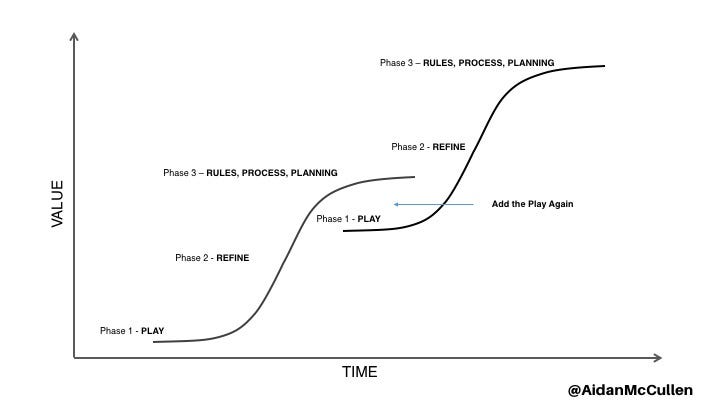
In sports, as in any discipline, you are first attracted to your chosen sport for whatever reason, perhaps it was the love of the game or it may simply because all your friends or family played that certain sport. In your fledgeling state as a beginner, you tinker, play and experiment with your game and over time you refine it and finally, you add discipline to your game. The best players, just like the best organisations do not stop once they become disciplined. It is at this stage that they begin the cycle afresh and this cycle should continue perpetually to avoid stasis and entropy.
As we discuss on this week’s innovation show with Christopher Phillips PhD, we cannot regard childhood as merely a journey towards adulthood, childhood isn’t merely a state of becoming, while adulthood is one of being, as if we’ve “arrived” and “reached the summit”. Instead, we should respect childhood for the magical stage of wonder, curiosity and imagination that it represents. In a similar fashion, neither an athlete nor an organisation should ever consider they have “reached the summit”, to an ever-evolving being or organism there is no finish line, there is only a constant state of becoming.
Releasing the Inner Child
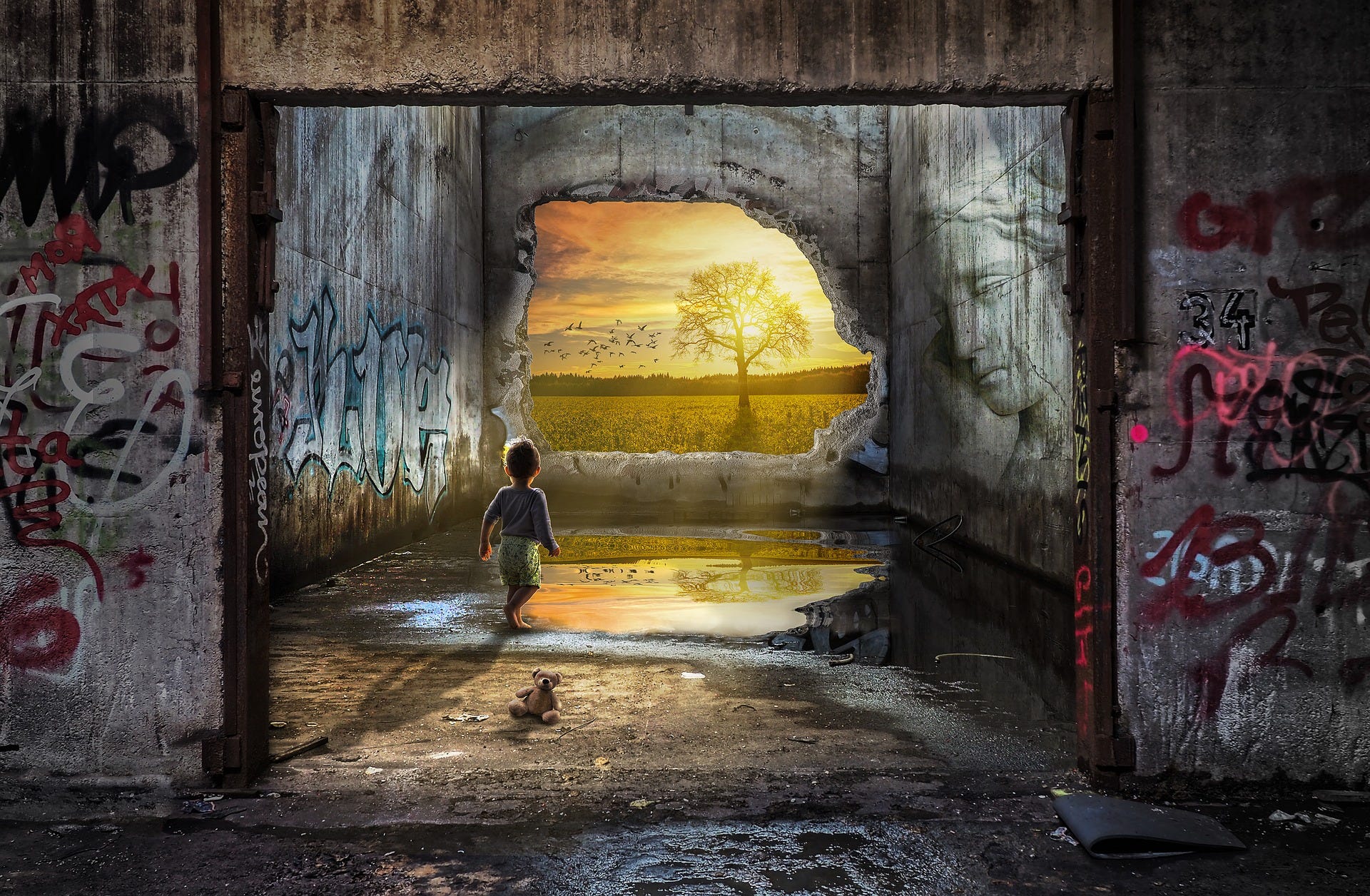
We all still have a child inside us, if you don’t believe me, go to a sports game and observe the crowd and you will see grown men howl, whoop and jump around like children. It’s time to reintegrate the kid, both in life, but also in business.
The young have few preconceptions, prejudices and biases about what they are seeing; they are not wedded to belief systems that would prescribe certain rigid lenses for how they should see. They are at home with ambivalence, doubt, uncertainty, incompleteness, scepticism. It is society, it is media, it is education and it is parenting that gradually flavours their view of their world so that they believe things should be done in this way or that. In a business world in complete flux, the skills we bludgeon from children are the very skills they need to navigate the new world (dis)order.
Psychological safety is a psychological term that can be defined as “being able to show and employ one’s self without fear of negative consequences of self-image, status or career” (Kahn 1990). A child plays without the fear of judgment, if a child tries something new and fails, we encourage them, we commend them for trying. If a business executive tries something new and fails, the organisational reaction is overwhelmingly negative. It is this risk of losing face, the risk of shame that inhibits innovation in the workplace. Thus grinning and bearing less than desirable conditions appears a safer bet than the risk of innovation.
The French philosopher Gaston Bachelard (1884–1962), said that adults never lose the essence of childhood, which “remains within us a principle of deep life, of life always in harmony with the possibility of new beginnings.” Organisations are groups of adults and all those adults have a dormant child inside. It is time to awaken that child.
THANK YOU FOR READING
This post was heavily influenced by the great book “A Child at Heart: Unlocking Your Creativity, Curiosity, and Reason at Every Age and Stage of Life”, which is the focus of this week’s innovation show with the founder of Socrates Cafe, Maverick philosopher and author — Christopher Phillips PhD.
Weaving together philosophy, social science and neuroscience research, personal anecdotes and dialogues, A Child at Heart takes a radically different approach to the traditional boundaries between childhood and adulthood to reveal how rather than lapse into adulthood, we can achieve what the Greeks of old call arete — all-around excellence — when we look to children and youth as a lodestar for our development.
Childhood is our primary launching pad, a time of life when learning is more intense than at any other when we gain the critical knowledge and skills that can help ensure that we remain adaptable. This book weaves together the thinking of philosophers from across the ages who make the unsettling assertion that with the passage of time we are apt to shrink mentally, emotionally, and cognitively. If we follow what has become an all-too-common course, we denature our original nature — which brims with curiosity, empathy, reason, wonder, and a will to experiment and understand — and we regress, our sense of who we are will become fuzzier and everyone in our orbit will pay a price.
Mounting evidence shows that we begin our lives with a moral, intellectual, and creative bang, and in this groundbreaking, heavily researched, and highly engaging volume, today’s guest makes the provocative case that childhood isn’t merely a state of becoming, while adulthood is one of being, as if we’ve “arrived” and reached the summit. His life-changing proposition is that if we embrace the defining qualities of youth, we’re not destined to become frail, dispirited, or unhinged, we’ll grow in a way defined by wonder, curiosity, imaginativeness, playfulness, and compassion — in essence, unlimited potential.
Have a listen:
Soundcloud https://lnkd.in/gBbTTuF
Spotify http://spoti.fi/2rXnAF4
iTunes https://apple.co/2gFvFbO
Tunein http://bit.ly/2rRwDad